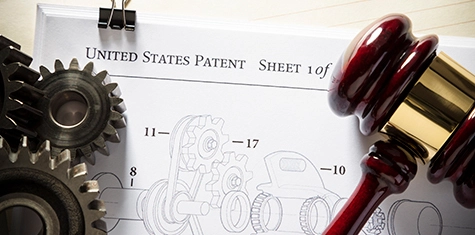The duty to preserve evidence and the significant events that determine when the duty to preserve arises is often intertwined with privileged discussions and documents related to the planning and implementation of a litigation hold. And when there is a dispute about when the duty to preserve was triggered and there are allegations of spoliation, concerns regarding protecting privilege and not waiving privilege become critically important.
Federal Rule of Evidence 502(d) is a powerful tool available to litigants trying to protect against waiver of privilege as a court “may order that the [attorney-client] privilege or [attorney work product] protection is not waived by disclosure connected with the litigation pending before the court ....” Fed. R. Evid. 502(d); see also Whitaker Chalk Swindle & Sawyer, LLP v. Dart Oil & Gas Corp., No. 4:08-cv-684, 2009 WL 464989, at *4 (N.D. Tex. Feb. 23, 2009) (rejecting argument that “Rule 502 is limited to inadvertent disclosures”).
Lubrizol Corp. v. IBM: A Cautionary Tale
A recent federal court decision provides a cautionary tale to litigants dealing with the complexities of preservation, privilege and the use of a Rule 502(d) order. In Lubrizol Corp. v. IBM, 2024 WL 941686 (N.D. Ohio Feb. 8, 2024), the court addressed whether a Rule 502(d) order sought by IBM in the face of spoliation allegations can apply to protect the intentional disclosure of certain documents regarding its preservation and litigation hold efforts without waiving the privilege over any related areas, as well as whether IBM waived privilege with respect to its preservation efforts in disputing Lubrizol’s spoliation claim by asserting that IBM did not reasonably anticipate litigation before the filing of the complaint.
The Discovery Dispute Regarding IBM’s Preservation Efforts
Lubrizol filed its complaint in April 2021 alleging that IBM breached a contract between the parties and also accused IBM of fraud and various torts in connection with a project to implement a new enterprise resource planning software. Lubrizol, 2024 WL 941686 at *1. Lubrizol amended its complaint months later in December 2021 to add a claim that IBM committed the tort of spoliation when it deleted the ESI of several IBM personnel who worked on the project. Id. In particular, Lubrizol claimed that between July 2019 and October 2021, IBM deleted the email boxes of several IBM personnel who played key roles on the project. Lubrizol also alleged that IBM failed to issue a litigation hold until May 2021, after Lubrizol filed its complaint. Id.
IBM did not dispute that the deletions occurred. IBM’s stance was that the deletions were the result of IBM’s routine document retention protocol and that its duty to preserve was not triggered until the filing of the complaint. Lubrizol claimed that there were a series of events that put IBM on notice that litigation was anticipated well before the complaint was filed. Id.
Lubrizol filed a letter motion asking the court to compel IBM to respond to certain interrogatories and document requests regarding IBM’s preservation efforts. Id. at *2. IBM filed its own letter motion requesting that the court enter a Rule 502(d) order that would permit IBM to produce some privileged preservation-related materials without waiving the attorney-client privilege over other, unproduced materials on the same subject matter. Id. at *2.
The Court Denied IBM’s Request for a Rule 502(d) Order
The court first addressed IBM’s request for a Rule 502(d) order that would allow IBM to produce certain documents and information regarding its preservation efforts and litigation holds without waiving the privilege over any other related materials and without exposing itself to the risk of subject matter waiver. Id. The court explained that “Rule 502 was enacted to achieve two main goals: (1) resolving disagreement among courts regarding the effect of certain disclosures of privileged information; and (2) preventing litigation costs from spiraling due to fears that any disclosure of a privileged document would result in subject-matter waiver of all other communications on the same topic.” Id.
The court initially made clear that even though the parties disagreed regarding the propriety and scope of the proposed 502(d) order, the court found that “it is well-settled that a court may enter a Rule 502(d) order on its own initiative and without the consent of both parties.” Id. at *3.
Lubrizol, however, also argued that the court lacked authority to enter a Rule 502(d) order that would permit IBM to intentionally, rather than inadvertently, disclose privileged information without constituting a subject matter waiver of all other documents and communications on the same topic. Id. According to the Sedona Conference, “[a] Rule 502(d) order may address not only inadvertent waiver, but also instances in which intentional disclosure will not result in waiver.” The Sedona Conference Commentary on Protection of Privileged ESI, 17 Sedona Conf. J. 95, 130 (2015). However, the court cited to a few cases where other courts have reached the opposition conclusion. Lubrizol, 2024 WL 941686 at *3 (citing Smith v. Best Buy Stores, L.P., No. 4:16-cv-00296-BLW, 2017 WL 3484158, at *3 (D. Idaho Aug. 14, 2017) (“The Court also has serious reservations about the enforceability of a clawback order extending to intentional disclosures.”).
Ultimately, the Court determined that it lacked the authority to grant such a Rule 502(d) order for intentional disclosures because the court was primarily concerned about the possibility that IBM’s proposed Rule 502(d) order “would enable it to disclose documents that support its spoliation position while continuing to withhold, other, less favorable documents.” Lubrizol, 2024 WL 941686 at *3. The court also pointed out that other courts shared this same concern and did not enter a Rule 502(d) for intentional disclosures. Id. (citing Thomas v. Marshall Public Schools, No. 21-cv-2581 (PJS/DJF)), — F. Supp. 3d —, 2023 WL 5743611, at *12 (D. Minn. Sept. 6, 2023) (“While Rule 502(d) allows a party who discloses privileged material to claw them back without having to prove the disclosure was ‘inadvertent,’ it does not sanction the tactical, selective disclosure of some privileged materials for use in litigation while withholding others on the same subject.”).
The Court Found That IBM Waived Privilege With Respect to Its Preservation Efforts
After granting Lubrizol’s motion to compel IBM’s responses to certain interrogatories and document requests regarding IBM’s preservation efforts, the court next turned its attention to Lubrizol’s argument that IBM had waived the attorney-client privilege and work product doctrine under both the “at issue” waiver and crime-fraud doctrine. Lubrizol, 2024 WL 941686 at *5-7.
The court focused on the “at issue” waiver under Ohio law and concluded that IBM waived privilege and that applying the privilege would deny Lubrizol access to information that is vital to its spoliation claim which is unavailable from any other source. Id. at *9-11.
The court reasoned that IBM made relevant the advice that it received from counsel regarding its document preservation efforts and whether litigation was reasonably likely prior to the filing of Lubrizol’s complaint in April 2021 by sending a letter to Lubrizol in October 2021 defending against Lubrizol’s spoliation allegations and claiming it did not reasonably anticipate litigation at the time the documents were deleted. Id. at *9-10.
According to the court, “[i]f counsel was telling IBM before April 2021 that litigation was reasonably likely, that is certainly relevant to Lubrizol’s claim. Similarly, if IBM’s counsel identified the disputed employees as potentially relevant custodians before their email boxes were deleted, that would impact IBM’s state of mind and the strength of Lubrizol’s spoliation claim.” Id. at *10.
As such, the court found that “IBM waived privilege with respect to: (1) IBM’s document preservation efforts; (2) whether IBM reasonably anticipated litigation at the time of the alleged spoliation; and (3) when IBM identified the disputed custodians as individuals who might possess information relevant to the case” and ordered IBM to produce all responsive documents. Id. at *11.
Finally, the court rejected IBM’s argument that applying the at-issue waiver to these circumstances would create an “incredibly slippery slope” because it would allow the other side to see IBM’s attorneys’ assessment of the merits of the dispute. To address this concern, the court allowed IBM to redact privileged information that dealt with other topics. Id. at *10.
Key Takeaways:
- The Scope of a FRE 502(d) Order: This case focused on the scope of a Rule 502(d) order as an attempt to be used as a blanket protection for intentional disclosures of privileged information as opposed to just inadvertent disclosures and finding that the circumstances did not warrant the protection of the selective and intentional disclosures proposed by IBM.
- A Rule 502(d) Order Is a Very Powerful Tool: Although the court in the Lubrizol case did not enter the requested Rule 502(d) order proposed by IBM, litigants need to remember that a Rule 502(d) order should be used at the outset of a case as it can protect litigants against privilege waiver without having to prove that they have taken reasonable steps to prevent an inadvertent production of privileged documents. As Judge Andrew Peck (retired) has repeatedly told legal practitioners, a Rule 502(d) order can be viewed as a “get-out-of-jail-free card” and “it is akin to malpractice not to get a Rule 502(d) order.” Commentary on the Effective Use of Federal Rule of Evidence 502(d) Orders, 23 Sedona Conf. J. at 17 n.23.
- Leveraging Discovery To Uncover When an Opposing Party Anticipated the Potential for Litigation: This case provides a potential roadmap to challenge an opposing party’s preservation efforts through the use of discovery where spoliation is at issue and the opposing party is attempting to use privilege selectivity as a sword and shield.
- Risk of Privilege Waiver: The Lubrizol case highlights the real risk of privilege waiver for companies dealing with the complexities of when litigation is reasonably anticipated to trigger the duty to preserve and the potential legal pitfalls that can arise when documents have been deleted and responding to opposing counsel to defend against spoliations claims.
- Early Assessment of the Duty To Preserve Is Critical: This case serves as an important reminder that companies need to take seriously its duty to preserve obligations and confer with counsel early regarding whether litigation is reasonably anticipated, implement a reasonable preservation strategy, and discuss the potential downsides that can arise when the anticipation of litigation and preservation obligations are not managed carefully.



